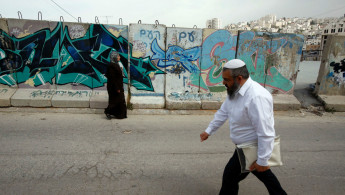Israel 'giving green right to abuse' in occupied Palestinian city of Hebron
The Temporary International Presence in Hebron (TIPH) was established after a massacre of Palestinians in 1994.
Israeli Prime Minister Binyamin Netanyahu announced Monday he would not extend its mandate, accusing it of bias.
The Palestinians labelled the move a "green light" for Israeli settlers in the city to carry out abuses.
"I think nations should stand tall against this," PLO secretary general Saeb Erekat said.
He said Israeli settlers and soldiers had committed "40,000 attacks and violations against the Palestinian people in Hebron" since the TIPH was formed, without giving a source for the figure.
"Imagine what will they do without the presence of this force."
European countries which staff the mission also opposed the Israeli decision.
"We have learned of this decision with regret but we continue our efforts," Italy's Foreign Minister Enzo Moavero Milanesi told Italian news agencies.
"Sweden and the other countries of the mission deeply regret the Israeli statements," a Swedish foreign ministry spokesman said.
"We believe that the mission is important and should continue."
The Norway-led team is comprised of 64 observers tasked with promoting security for Palestinians in Hebron, the largest city in the West Bank.
Its mission was created after 29 Palestinian worshippers in a mosque were gunned down by an American-born Israeli settler.
Observers carry out daily patrols and document rights abuses they witness, although they are not allowed to intervene.
The mission reports its findings to its member countries -- Italy, Norway, Sweden, Switzerland and Turkey -- as well as the Israeli and Palestinian authorities.
Hebron is holy to both Muslims and Jews and has been a flashpoint in the Israeli-Palestinian conflict.
At least 600 Jewish settlers live under heavy military guard in the city, which is home to around 200,000 Palestinians.
Israeli settlements are seen as illegal under international law and a major obstacle to peace, as they are built on land the Palestinians see as part of their future state.





 Follow the Middle East's top stories in English at The New Arab on Google News
Follow the Middle East's top stories in English at The New Arab on Google News


